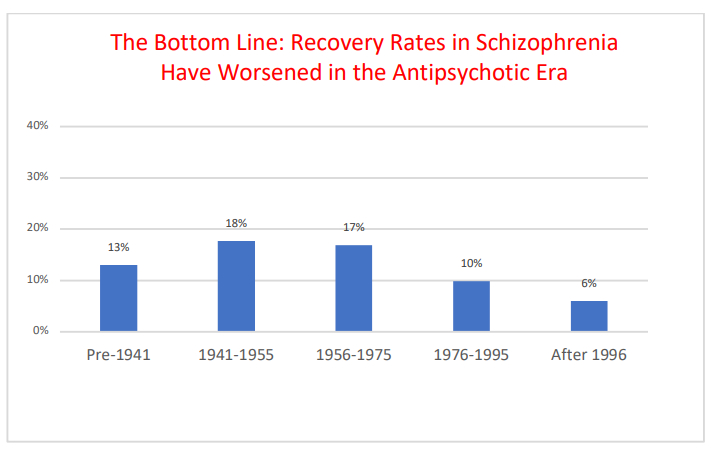From the Coalition Against Medicalized Psychiatry and Psychology (CAMPP): “The mental health professions are in crisis. After more than two centuries of earnest efforts to discover the pathophysiological causes of mental disorder, none have been found. The number of Americans on social security disability due to a mental disorder has risen dramatically from 1 in 750 in 1950 to 1 in 70 today. The suicide rate has increased significantly in recent years. The recovery rate from arguably the most serious mental disorder, schizophrenia, hasn’t improved since 1900 and is far lower than the recovery rate in Colombia, Niger, and India (see figure below).

This glaring failure of biological psychiatry clearly warrants that we abandon the failed medical model of human distress. The lesson of this long line of research is that mental disorders are natural and meaningful, yet problematic, human responses to life situations, concerns people have about their lives and themselves, and efforts to cope with life the best they can. Therefore, calling them disorders or illnesses is only metaphorical, not literal, and addressing them with a medical approach is unjustified.
There is no doubt that individuals suffer from serious emotional distress, and some of them can act in very upsetting and harmful ways. But we have not found evidence that they do so because of internal dysfunctions that can be addressed with a medical model.
. . . By defending the medical model of human distress, the mental health professions have put themselves in an ethically untenable position that is not worthy of trust or respect.
Therefore, we, the undersigned practitioners and academicians of the mental health professions, call on our professional member organizations to do their ethical duty and respond to this crisis.”
***
Back to Around the Web











